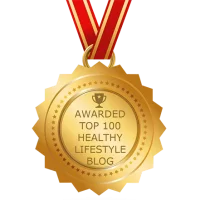Discover the wide range of health and longevity benefits that come from a balanced alkaline diet.
Many people don’t know that several of the foods we regularly eat have a negative effect on our alkaline body balance. The human body is naturally an alkaline environment, with a blood pH of 7.4 to 7.6. However, when we consume an overly acidic diet, we throw off our body’s healthy pH balance, causing us to become more susceptible for illness and disease. When our body’s normal pH balance becomes too acidic we expose ourselves to elevated risk of suffering from heart disease, diabetes arthritis, cancer, and other chronic diseases.
How to Control the Body’s pH Balance through Diet:
Fortunately, the human body is equipped with several mechanisms that work together to keep pH at an optimal level. Our organs are able to neutralize and eliminate excess acid from the body – but this ability has its limits. The best way to maintain an adequate acid-alkaline base within the body is to consume a healthy diet composed of at least 50-80% alkaline foods and limiting highly acidic foods.
The standard Western diet is generally high in acid- forming foods such as meat, dairy, corn, wheat, and refined sugars which overwhelm the body’s mechanisms for removing excess acid. At the same time, our diets are notably deficient in alkalizing foods such as fruits and vegetables.
Therefore, an overall healthy diet should consist mostly of alkaline foods:
- Vegetables – salad greens, cabbage, carrots, radish, watercress, turnip, garlic, squash, zucchini, cucumber, asparagus, onion, peas, chives, celery, kale
- Fruits – apple, bananas, berries, cantaloupe
- Seeds, nuts, and grains – pumpkin, sesame, flax, sunflower, pine nuts, almonds
- Natural fats and oils – olive, flax
- Drinks- water, herbal teas, fresh vegetable juices, non-sweetened soy milk
What can a Dieter Expect from Following a High Alkaline Diet?
There are many benefits to eating an alkaline diet:
- Improved energy levels
- Healthier teeth and gums
- Improved immune function
- Reduced pain and inflammation
- Lower risk of chronic diseases
- Protect the body against cancer and even help to cure it once it has developed
- Slower aging – better functioning cells when subjected to less acidic environment means a younger appearance for you
- Weight Management
Tips for Starting an Alkaline Diet:
The more you learn about how everything you’ve been doing up until now has caused an extremely acidic environment in your body can give you the motivation and determination to make some much needed diet and lifestyle changes.
- Get a list or chart that identifies foods as either alkaline or acidic (use it while grocery shopping)
- Drink plenty of pure water. This is vital for a number of reasons. The body needs enough water to properly function and metabolize stored fat in an efficient way. Key role in getting rid of excess weight, and also helps dilute salt to reduce retention.
- Search for delicious alkaline recipes
- Use herbs frequently to find creative and healthy ways to add flavors to your meals
- Drizzle on healthy oils (olive oil, grape seed oil, flax)
- Start slowly by gradually incorporating more alkaline foods into your regular diet
- Choose alkaline food combinations that you and your family already enjoy
Alkanalizing Foods
VEGETABLES
Alfalfa *
Asparagus
Barley Grass *
Broccoli
Cabbage, lettuce fresh
Carrots
Cauliflower
Celery
Cilantro
Chard
Chives
Collard Greens
Cucumber, fresh*
Dandelion *
Edible Flowers
Eggplant
Endive, fresh
Garlic
Green Beans
Green Peas
Jicama *
Kale *
Lettuce
Mushrooms
Mustard greens
Onion
Parsnips
Peas
Peppers
Pumpkin (raw)
Radish
Red Cabbage
Red beets, fresh
Sea Veggies
Sorrel*
Spinach
Spirulina
Soy Sprouts *
Squash
Tomatoes
Turnip
Watercress
Wheat grass*
White cabbage
ZucchinI
FRUITS
Apples
Avocado
Banana
Blackberries
Blueberry
Cantaloupe
Cherries
Coconut, fresh
Figs
Fresh lemons and limes
Rhubarb
Tomato
PROTEIN
Almonds
Flax Seeds
Granulated Soy
Lentils
Lima Beans
Millet
Pumpkin Seeds
Pine Nuts (raw)
Sprouted Seeds*
Soy flour
Soy lecithin, pure*
Soy nuts (soaked from soy beans)*
Sunflower Seeds
Tempeh (fermented)
Tofu (fermented)
Whey Protein Concentrate
FATS & OILS
Coconut Oil (raw)*
Flaxseed oil
Olive oil
Sesame Oil
SPICES/SEASONINGS & SWEETENERS
Cayenne
Chili Pepper
Cinnamon
Ginger
Herbs (all)
Stevia
Oregano *
OTHER
Alkaline Water
Baking soda
Bee Pollen
Buttermilk
Fresh Vegetable Juices
Herbal Green Tea
Mineral Water
Natural Fruit Juices
Non-sweetened Soy milk




